7. Singapore (Live Qurban) – Sat, 7 Jun between 2 pm – 5 pm – COMPLETED
8. Uganda – Fri & Sat, 6 & 7 Jun by 3 pm – COMPLETED


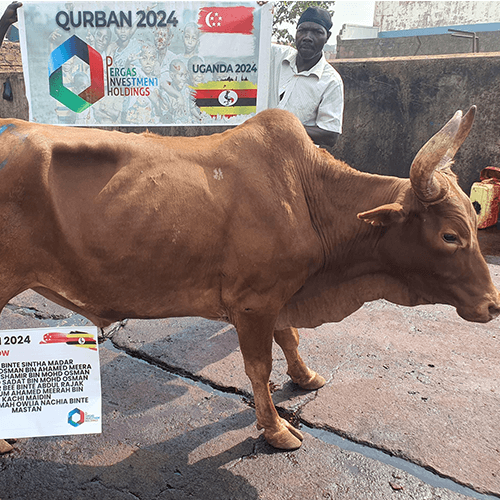
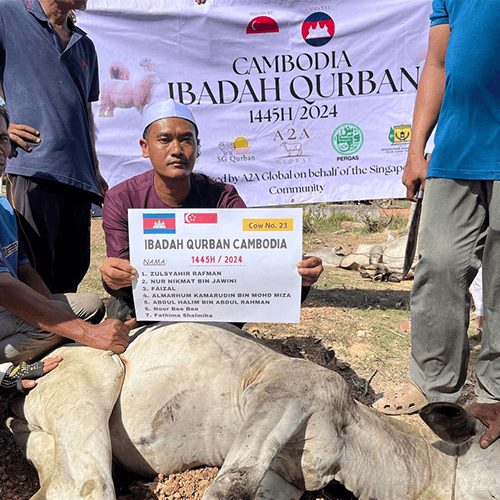
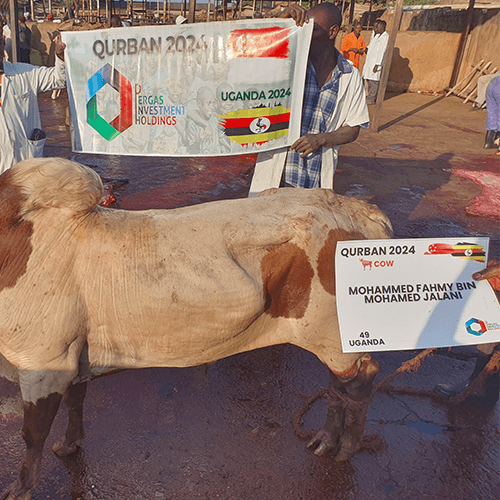
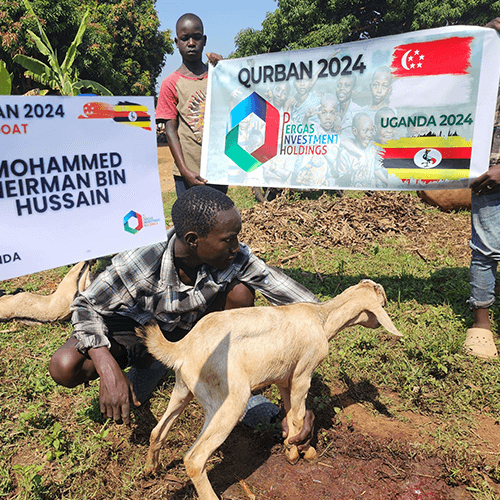
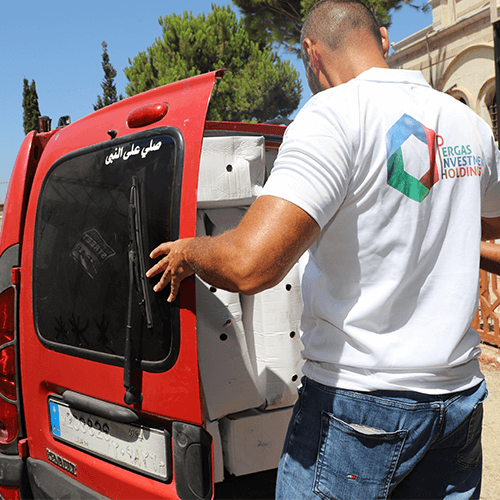
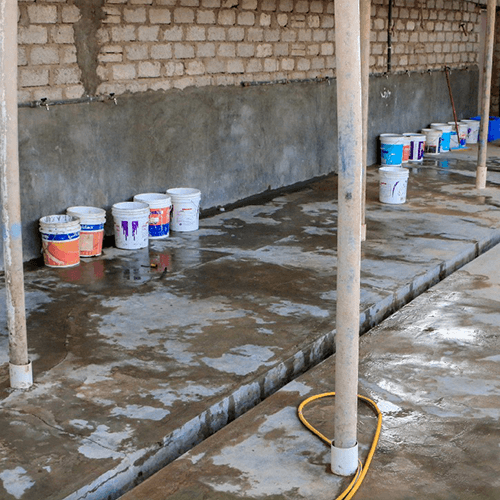
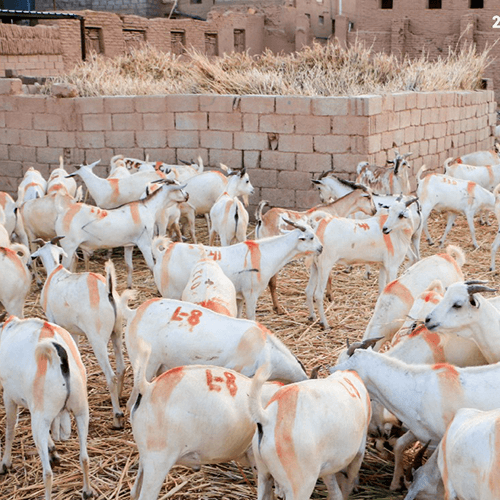
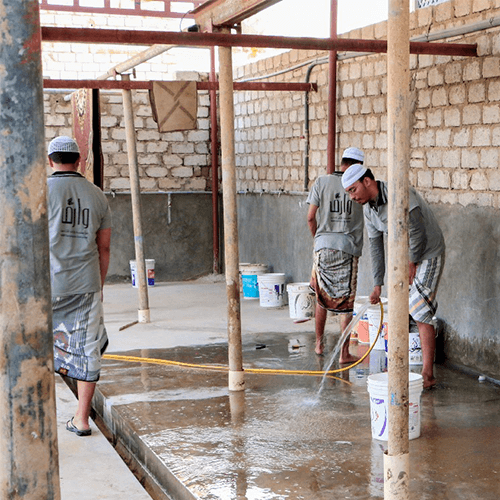
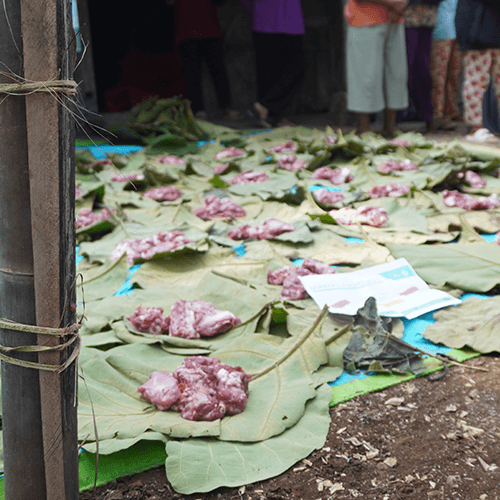
The qurban is a sacrificial animal slaughter to be made to Allah (Glory to Him, the Exalted) on Eid al-Adha, 10th Zulhijjah. The time for slaughtering enters after sunrise once enough time has passed to perform two short rakaat and two short khutbah. It remains valid to slaughter until sunset on the last day of Tasyriq, 13th Zulhijjah.
“So, pray to your Lord and sacrifice [to Him alone].” al-Kawthar,
108: 2. Allah (Glory to Him, the Exalted).
It is an emphasised sunnah (sunnah muakkadah) of Prophet Muhammad (Peace and blessings be upon him).

“There is nothing dearer to Allah during the days of sacrifice than the sacrificing of animals. The sacrificed animals shall come on the day of Qiyamah (Resurrection) with its horns, hairs and hooves. The sacrifice is accepted by Allah before the blood reaches the ground. Therefore, sacrifice with an open and happy heart.” (Ibn Majah) The Prophet Muhammad (Peace and blessings be upon him)
Through this sacrifice, we intend to be closer to Allah (Glory to Him, the Exalted) by following in the footsteps of the great Prophet Ibrahim (Peace be upon him) who embodied the meaning of servitude and obedience to Allah (Glory to Him, the Exalted).
In his devotion to Allah (Glory to Him, the Exalted), Prophet Ibrahim (Peace be upon him) who dreamed that Allah (Glory to Him, the Exalted) ordered him to sacrifice his only son, Ismail (Peace be upon him), agreed to follow his dream and perform the sacrifice.
But Allah (Glory to Him, the Exalted) intervened and sent a ram to be sacrificed in Ismail’s (Peace be upon him) place.
It is only valid to slaughter camels, cattle, sheep or goats. Camels and cows fulfill the sunnah for seven people and can be shared among them. Sheep and goats cannot be shared by multiple people, since they only fulfill the sunnah for a single person.
It is permissible to eat the meat, although some of it that is non-trivial amount must be given away in charity. Ideally, one-third of the meat is given to charity, one-third to wealthy Muslims and to keep one-third for oneself. The meat must be given uncooked.
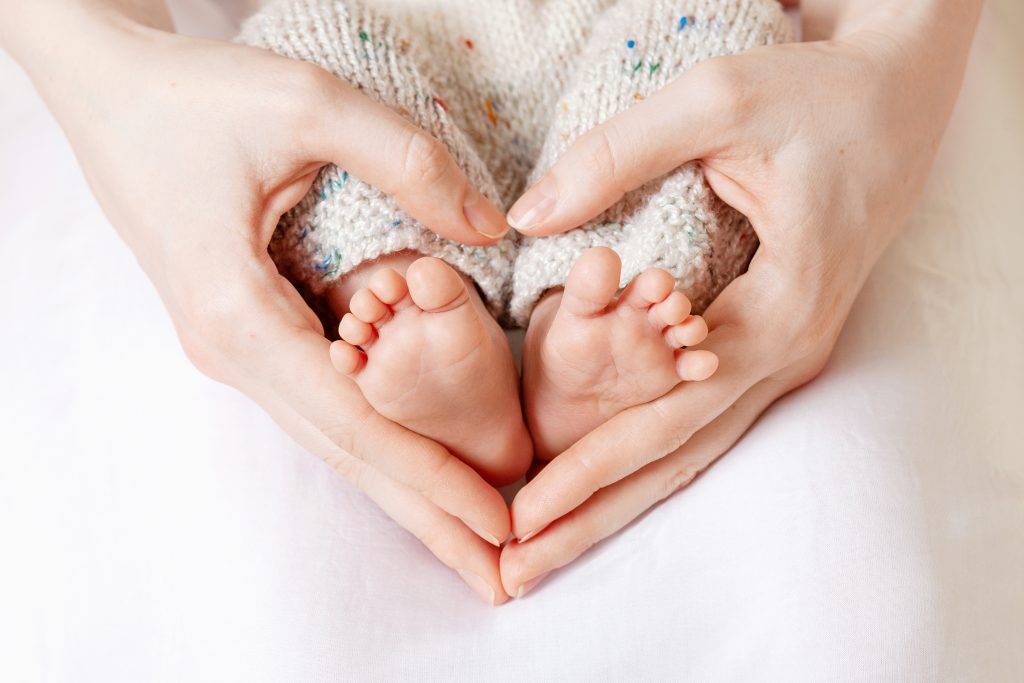
Aqiqah refers to the slaughtering of an animal after childbirth in appreciation to Allah (Glory to Him, the Exalted) for the blessing of the child. It is part of the legacy inherited from Prophet Ibrahim (Peace be upon him) and an emphasised sunnah (sunnah muakkadah) of Prophet Muhammad (Peace and blessings be
upon him).
Aqiqah is performed by any individual entrusted by Sharia to take charge of the financial needs of a newborn. In most instances, but not exclusively, this would be the parents.
“Every child is mortgaged by his aqiqah, so slaughter for him on the seventh day (of his birth), shave his head and name him.” (Ibn Majah)
The Prophet (Peace and blessings be upon him).
According to some scholars, when the parent fails to perform the aqiqah, the child is requested to do so after reaching the age of puberty even till the day of his death. The preferable day to perform aqiqah is on the 7th day of the child’s birth. If for any reason aqiqah cannot be done on the 7th day, it can be done on the 14th, 21st or whenever possible.
t is only valid to slaughter goats, sheep, cattle or camels. The least of which is one complete sheep or goat or one-seventh from a cattle or camel. However, two sheep or goats are preferable for a boy. Its meat can be used to arrange a feast to which relatives, neighbours and friends are invited and distributed to the poor as well.
Celebrate the birth of your newborn by performing your aqiqah
with us!
Let’s Stay Connected

Subscribe to our newsletter now and receive a free “Penyejuk Mata Ayah Bonda” e-book!
RELOCATION NOTICE
New address
168 Changi Road
#04-02, Paradise@Pergas
Singapore 419730
For any enquiries, email us at info@pergasinvestment.sg or call 9100 4251/9022 5179